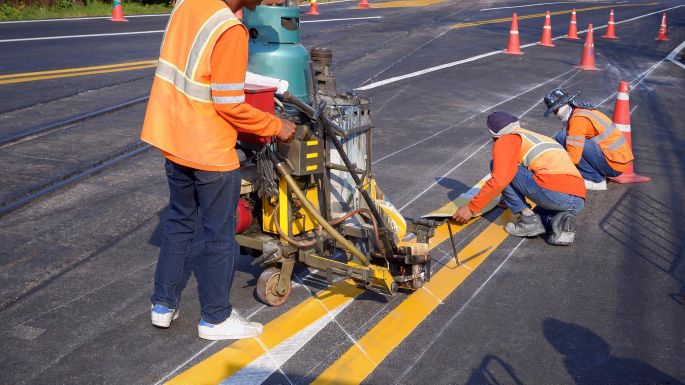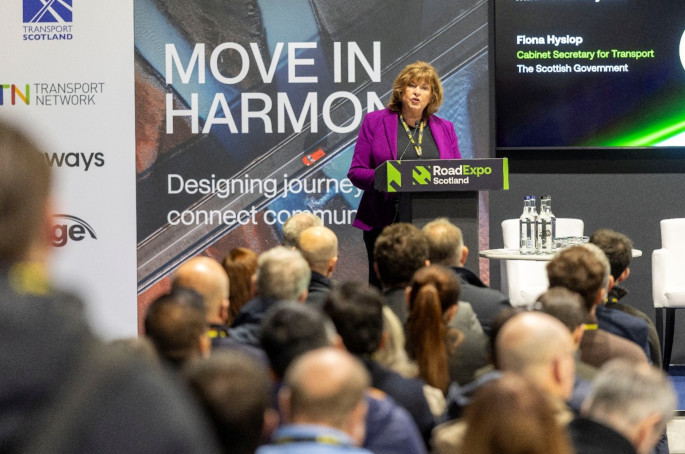Brian Kent, national technical director at Tarmac, takes a look at what the highways industry can do to reinvent our towns and cities in a post-pandemic world.
There is no doubt that this has been the biggest year of change for our towns and cities in decades – change that has undoubtedly created disruption across the highways industry and beyond.

Many urban centres have had to re-establish themselves during the age of COVID-19, laying new bike paths, turning some roads into extended café terraces, and starting the process of reconfiguring buildings for different uses. Regeneration in this way will only continue as the phases of the easing of lockdown unfold.
As sustainability creeps further up the agenda for all, and with the ‘build back better' vision at the forefront of many of our minds, there has been a clear collective ambition from civic leaders to create better places for a post-pandemic world, through ensuring cities and towns are greener, healthier, less polluted, more productive, and perhaps more affordable.
While this is all great, it is no secret that there are challenges to the ‘build back better' vision. The transformational approach set out by the Government outlines tackling long-term problems to deliver growth, while supporting the transition to net-zero.
However, it is apparent more than ever before that local authority budgets are under huge strain, and as we have seen in this year's ALARM survey, Government funding continues to be scarce with no long-term solution in sight.
While most of tomorrow's urban infrastructure is already in place, there is a need to rethink the way we do things, here and now.
So, what should be on the post-COVID action list?
For local authority highways teams in particular, there is a need to find a way to adopt innovation faster and to overcome the historical handcuffs of specification barriers. These very barriers stifle the opportunity to use now proven non-standard surfacing materials, which have demonstrated their ability to deliver improved environmental and social outcomes.
Warm mix asphalt is the prime example here. This technology, which is not exclusive to Tarmac, reduces the embodied carbon of asphalt compared to conventional hot mixes and its carbon footprint can be reduced by as much as 15%.
The material also delivers health and safety benefits for the workforce. For each 10 centigrade degree reduction in temperature, there is a halving in the fumes produced.
Additionally, there is a boost to productivity within a working window due to the reduction in the time needed to cool to trafficking temperature, allowing for a significantly earlier overlay. This ensures work can be completed earlier, not to mention the overall reduction in disruption to road users.
So why have many councils struggled to embrace warm mix asphalt?
We first launched this material technology in 2013 following a three-year project with the Carbon Trust, which was keen to explore and quantify the environmental advantages. In the following eight years, we have seen some local authorities adopt the material and reap the benefits. Many of the London boroughs have shown greater leadership with this approach, as have councils in the Midlands.
However, even with the multitude of benefits, we are still witnessing a reluctance from some councils to adopt the material despite 74% of district, county, unitary and metropolitan councils declaring a carbon emergency, and many having a net-zero target of 2030.
There remains a similar slow adoption scenario with single layer surfacing technologies. This is also a proven surfacing approach that delivers long-term durability of the pavement as well as allowing greater productivity on site.
The barriers often cited to specifying the use of both of these materials typically fall into the following categories: lack of confidence despite supporting evidence, reluctance to change, fears about departing from technical specification, and sometimes misconceptions about cost benefits, which can be shared by both the local authority and contractor.
To take the cost point, our industry is often guilty of looking at initial cost in isolation without considering the whole-life performance of pavements that require less intervention because they are harder wearing and therefore longer lasting.
The evaluation criterion also needs to give greater consideration to the social and environmental gains of products that cut carbon, fumes and reduce public disruption.
Many of the solutions and treatments that can help our industry make more sustainable choices are available now and have been for many years. In other words, the solutions are not always new. Specifying these materials can and should be part of the ‘building back better' movement and the post-Covid vision for our cities and towns.
Unlocking the benefits of proven technologies requires more leadership as well as behavioural and operational change at a local authority level. Highways engineers need to consider how they can contribute to positive change in a post-pandemic world today. It's important the industry isn't left behind, the time to act is now.































